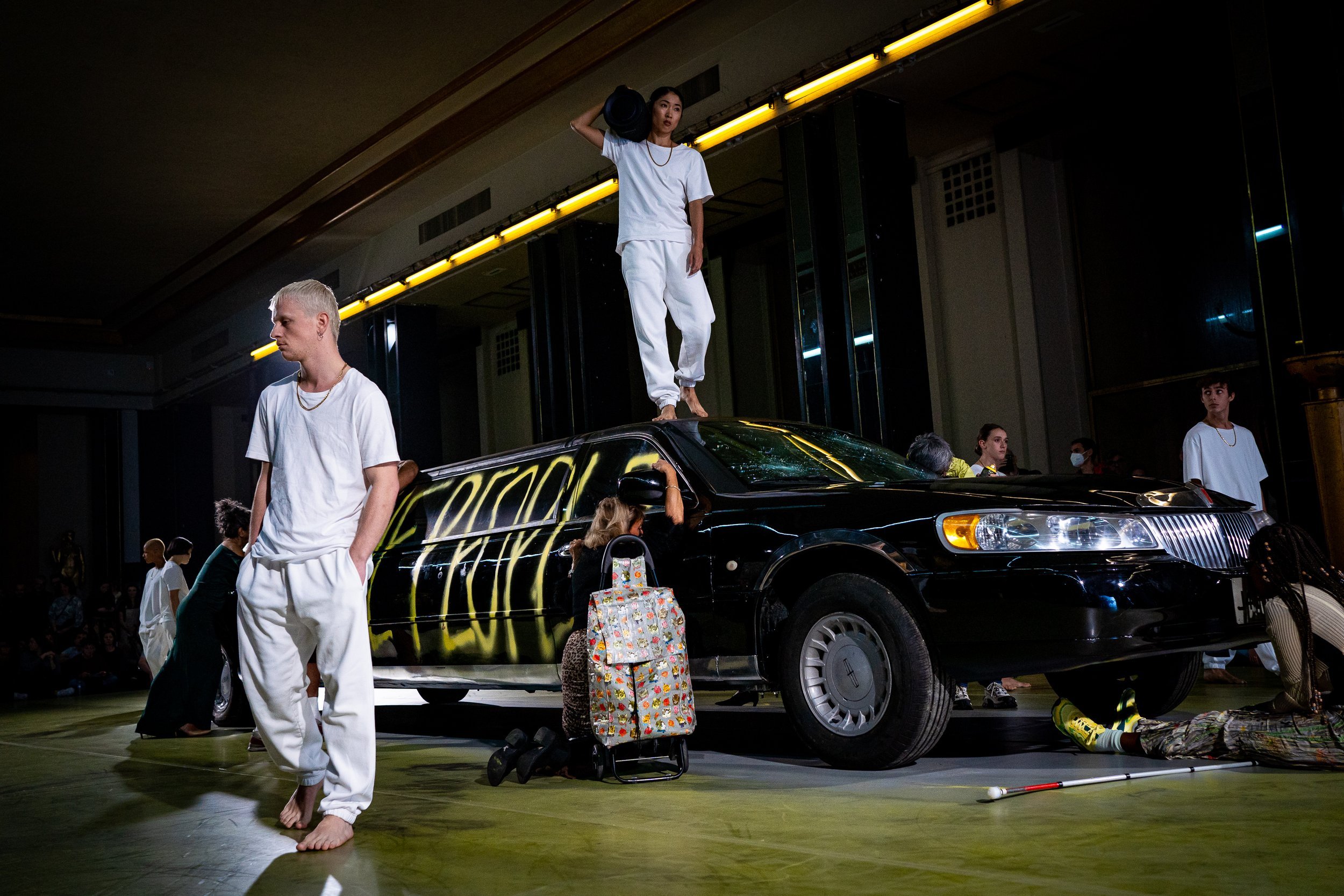Have attitudes changed towards key workers since the start of the COVID-19 pandemic?
Image: MTotoe
Since the onset of the COVID-19 pandemic, key workers have worked tirelessly to keep our essential services running. Whether it be through attending to patients in hospitals, ensuring supermarket shelves are properly stacked or teaching children online/in classrooms, there is no doubt that these individuals have done a tremendous amount for the UK.
Over the past few weeks, we’ve spoken to a range of key workers to understand whether attitudes towards them have changed as a result of the pandemic. Just a few weeks ago the UK public was uniting every Thursday evening on their doorsteps to clap and cheer for the key workers who have been propping up the country since the lockdown began at the end of March. However, with restrictions slowly being lifted and life returning to some sense of normality, do key workers feel their work has been appreciated?
The start of the pandemic
A study by YouGov conducted between the 7th and 15th of May 2020 found that 60% of key workers felt their work had been appreciated during the pandemic with healthcare workers feeling the highest levels of appreciation. Prior to the pandemic only 37% of key workers said they felt appreciated.
Additionally, recent research by Research Without Barriers for VoucherCodes found that nurses, supermarket workers and delivery drivers are now ranked as some of the most important jobs in the country. Many of those surveyed also supported initiatives such as pay rises for NHS workers (66% agreed) and free parking at work (53% agreed). Data suggests that key workers have become more appreciated as a result of the pandemic and indeed, some agreed when asked the question. A firefighter in London stated: “I can say that the support from the public regarding what I do has increased and I feel more valued in my role and what I do, which in turn motivates me to do what I do with more pride, passion and commitment.” An orthopaedic doctor in London also said: “in the context of the pandemic, people are acutely aware of how reliant they are on the NHS and how grateful they are for treatment and/or beyond their immediate selves or families.”
Increased frustrations
Many of the NHS workers we spoke to simultaneously acknowledged that patients have become increasingly frustrated by the effects of the pandemic, mainly because of longer waiting times for surgeries, appointments and treatment. A paediatric doctor in London said: “I have found in my experience some patients are disgruntled due to their care not being as quick as they would like – particularly when awaiting a very specialist opinion. In these situations, it makes me wonder if anything has really changed. As lovely as it is, coming out to clap is easy, but having to show patience and respect to health workers when things are not going your way is a completely different ballgame.”
A hospital manager in Dorset shared similar comments: “We have people complaining they can’t get appointments when they want them and others taking up valuable capacity by not turning up. This is a massive level of disrespect which conflicts with the clapping.”
It would appear that whilst many businesses have been donating food and their services to the NHS during this period and many of the public expressing gratitude through cards and gifts, for many patients proper recognition of the challenges faced by staff during the pandemic has been in short supply.
Actions speak louder than words
Key workers also identified a clash between the clapping and how people are behaving in terms of the rules set by the government in regard to slowing the spread of coronavirus. Whilst many participated in the Thursday clap and expressed outrage at parking fees for staff, NHS workers shared their disappointment that despite social distancing rules being in place, there were members of the public not abiding by them.
A hospital manager in Dorset commented: “We feel disrespected when we see crowds of people, like at Bournemouth, so the dynamics between clapping and actually recognising what we are going through on a daily basis are a real clash.” At the end of June, crowds of people were spotted flocking to Bournemouth beach. Although rules were that people could make non-essential trips and take unlimited exercise, pictures suggested social distancing guidelines weren’t being followed as strictly as they should have been. This came in the aftermath of the revelation that the Prime Minister’s chief adviser, Dominic Cummings, had made two trips to Durham during lockdown. Ironically, he was instrumental in making the decision which prohibited non-essential journeys.
The message from key workers was that it would be better for people to show their appreciation not by clapping, but instead by simply adhering to the guidelines. A nurse working in London commented that during the pandemic it often felt like social distancing wasn’t being properly policed in London which had made her feel uneasy. Again, a contradiction appeared between clapping on a Thursday and what people were doing day-to-day.
Keeping people safe in hospital
To try and protect staff, patients and residents from the virus, care homes and hospitals prevented visitors during the lockdown. There were a portion of key workers who felt that this had allowed a change in attitudes and that often, when abuse was thrown their way, it came from relatives rather than the patient or resident. An A&E nurse in London stated: “The main reason for less abuse is that relatives aren’t allowed in hospitals anymore, and the people that are actually unwell, and need to be there, are appreciative.”
Others mentioned that relatives had complained about not being able to access their sick family members but that little regard had been shown for the fact that many key workers had had to make a similar decision not to see their own families. A recent study by YouGov also showed that 70% of key workers had concerns about the health of their loved ones as a result of the pandemic.
Although many hospitals and care homes have started to allow some visitors, there are still complaints. A hospital manager from Dorset said: “We are now letting visitors in, in a highly structured way to keep everyone safe (it goes against all our fibres not letting them in). Our staff mostly can’t go and hug their parents as they are often elderly or live overseas. Daily, it is a conflict of how the teams feel and their care for their patients. The relatives complain as we are only allowed to let them in for an hour, we would like to see our families for 10 minutes.”
The forgotten workers
The general consensus from NHS workers was that they felt appreciated at the start of the pandemic but that this feeling had waned as time had gone on. However, when speaking to non-NHS key workers, many felt their contribution to the pandemic had been missed or forgotten about. A local authority worker in London commented that despite working in the service for over 20 years, she was now facing redundancy. She said: “Local authorities were never mentioned or appreciated. Many social workers and occupational therapists had to change work patterns and worked on the front line to minimise risk to their customers, in particular older people…you don’t go into social care for the money but to make a difference to people’s lives.”
Additionally, as the weeks rumbled on, there were calls to contribute the Thursday clap to key workers outside the NHS. However, listening to friends and family around the UK, enthusiasm for clapping had diminished and few heard any noise as the weeks carried on. Much of the focus seemed to be on the NHS and although their work should not be understated, there were other key workers who put their safety on the line to keep Britain going.
Have attitudes changed?
Surveys from early on in the pandemic suggest that key workers did feel their efforts were appreciated. At the time many of these surveys were conducted, lockdown was in full force and clapping for key workers was still a regular activity. However, as the lockdown has slowly been lifted and people have gradually been allowed more freedom, there is a sense amongst key workers that appreciation has decreased, and attitudes haven’t really changed. This seems to have been reflected in recent comments by health secretary Matt Hancock’s comments that ‘now is not the time to talk about payrises’ and by Boris Johnson’s comments that ‘too many’ working in care homes ‘didn’t really follow the procedures’ during the lockdown.
Image: Nicolas J Leclercq
Additionally, just last week, Tory MPs voted against protecting the NHS and publicly funded healthcare services from control outside of the UK by 340 to 251 votes. Despite Boris Johnson’s various comments throughout the pandemic about the hard work from NHS, it would appear that the UK’s national healthcare service is not held in as high regard as he suggests. Pay rises have also been approved for some public sector workers including teachers, doctors and police officers. However, other key workers who were instrumental in helping control the spread of the COVID-19 virus and kept the country afloat during lockdown were missed including nurses and junior doctors. Given this recent news, has anything really changed?
Words by Emma Chadwick












